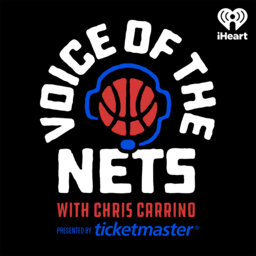Episode 35: A Pearl Jam Deep Dive with Steven Hyden
Chris explains his special connection with the iconic rock band Pearl Jam before speaking at length with music critic Steven Hyden about the band’s career, influence, and legacy.
You can find Steven’s book “Long Road: Pearl Jam and the Soundtrack of a Generation” wherever books are sold.
 Voice of the Nets with Chris Carrino (Presented by Ticketmaster)
Voice of the Nets with Chris Carrino (Presented by Ticketmaster)


